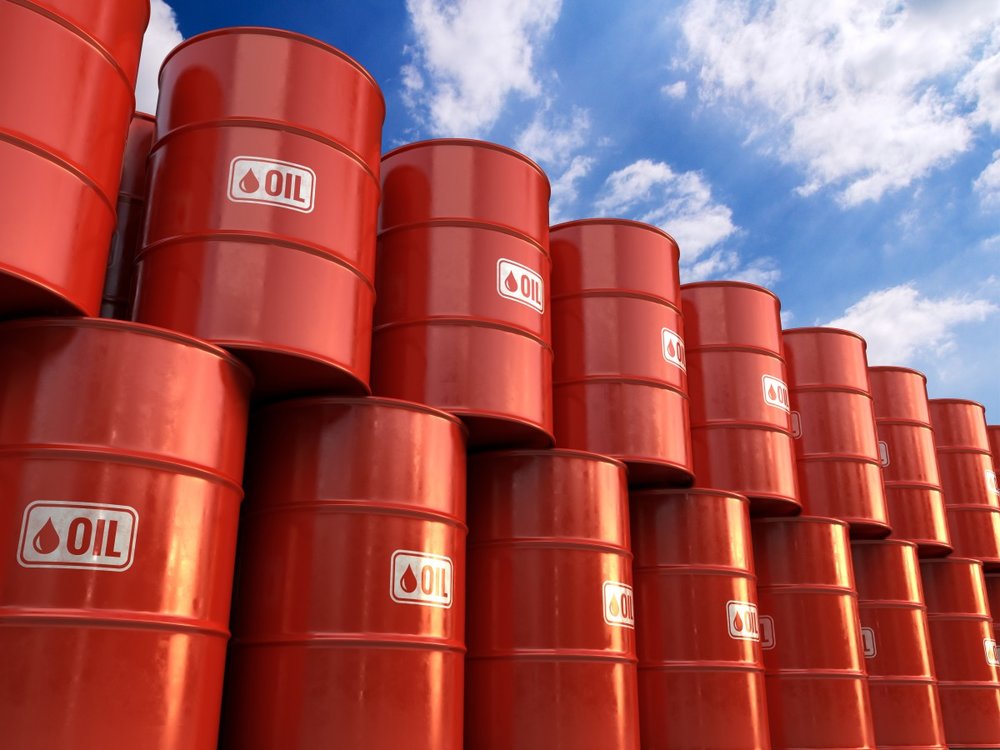
Iran Seeking Crude Market Expansion in Europe, Asia

Following the easing of curbs on Iran's energy sector in January 2016, a growing number of European companies joined the ranks of Iran's crude oil customers. The third biggest producer of the Organization of Petroleum Exporting Countries is now competing over a market of about 4 million barrels a day that constitute Europe's seaborne crude imports via tankers, Shana said in a report on Saturday.
Hellenic Petroleum, Greece's largest refiner, became the first buyer of Iranian oil after the nuclear deal between Iran and the six world powers came into effect in January. Big names also quickly moved to secure Iranian barrels.
In February last year, three international vessels loaded 4 million barrels of crude for destinations in Europe in what was the first major shipment of Iranian oil to European buyers after the tightening of sanctions in 2012. The shipments were ordered by France's Total, Spanish refiner Cepsa and Russia’s Lukoil.
Europeans on average shipped in 720,000 bpd of oil from Iran in the first seven months of this year, Shana reported, referring to Royal Dutch Shell, Italy's Saras and Hungarian oil and gas firm MOL as other major importers of Iranian crude.
Data show that Iran exported 2.15 million bpd of crude oil and about 500,000 bpd of gas condensates in January-August on average. Crude exports peaked at 2.3 million bpd in February, the report said.
Iran's crude output has climbed to the pre-sanctions level of around 4 million barrels per day and is slated to rise to 4.7 million bpd in four years. Under the sanctions, Iran lost more than one-third of its oil production capacity, as output declined to 2.5 million barrels a day.
Asian Market
Asian countries, particularly those in East Asia, are the backbone of Iran's crude oil customers.
China imported over 568,000 bpd from Iran, ship-tracking data showed, Reuters reported.
The world's second-biggest oil consumer burns around 13 million barrels daily. According to Shana, that amount is expected to increase by 2 million barrels a day in a few years in what would give Iran an unprecedented opportunity to cement its position in the Chinese energy market.
South Korea is looking like another increasingly reliable destination for Iranian crude. Data on Friday showed that South Korea's imports of Iranian oil increased 40.2% in August from the same month a year earlier.
South Korea, the world’s fifth-biggest crude importer, bought 1.55 million tons of Iranian crude last month, or 365,641 barrels per day, compared with 1.1 million tons in the same month in 2016, customs data showed on Friday.
Iran's crude exports to customers in East Asia could offset cuts by India's state refiners who are planned to reduce imports from Iran by one-fifth in the fiscal 2017-18 over disputes on development rights for an Iranian gas field.
India imported 335,400 barrels per day of oil from Iran in August, the lowest level since February 2016, posting a fall of about 42% from a year ago.


Trump weighs using $2 billion in CHIPS Act funding for critical minerals

Codelco cuts 2025 copper forecast after El Teniente mine collapse

Electra converts debt, launches $30M raise to jumpstart stalled cobalt refinery

Barrick’s Reko Diq in line for $410M ADB backing

Abcourt readies Sleeping Giant mill to pour first gold since 2014

Nevada army depot to serve as base for first US strategic minerals stockpile

SQM boosts lithium supply plans as prices flick higher

Viridis unveils 200Mt initial reserve for Brazil rare earth project

Tailings could meet much of US critical mineral demand – study

Kyrgyzstan kicks off underground gold mining at Kumtor

Kyrgyzstan kicks off underground gold mining at Kumtor

KoBold Metals granted lithium exploration rights in Congo

Freeport Indonesia to wrap up Gresik plant repairs by early September

Energy Fuels soars on Vulcan Elements partnership

Northern Dynasty sticks to proposal in battle to lift Pebble mine veto

Giustra-backed mining firm teams up with informal miners in Colombia

Critical Metals signs agreement to supply rare earth to US government-funded facility

China extends rare earth controls to imported material

Galan Lithium proceeds with $13M financing for Argentina project

Kyrgyzstan kicks off underground gold mining at Kumtor

Freeport Indonesia to wrap up Gresik plant repairs by early September

Energy Fuels soars on Vulcan Elements partnership

Northern Dynasty sticks to proposal in battle to lift Pebble mine veto

Giustra-backed mining firm teams up with informal miners in Colombia

Critical Metals signs agreement to supply rare earth to US government-funded facility

China extends rare earth controls to imported material

Galan Lithium proceeds with $13M financing for Argentina project

Silver price touches $39 as market weighs rate cut outlook

















